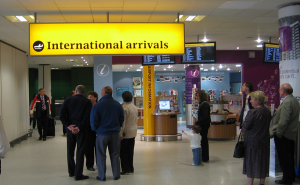In the case of a fatal accident or unexpected death abroad, one of the biggest concerns of the bereaved family is to return the remains of their loved one home – a process known as repatriation.
Although this may seem to be an incredibly daunting and complex undertaking – not least due to potential language barriers and communication difficulties – at Bay Tree Funerals, we aim to make it as straightforward as possible, with our complete and caring global repatriation service.
 What to do when death occurs abroad
What to do when death occurs abroad
Coping with a death whilst on holiday or traveling is something no one wants to face and can be very frightening. You don’t have to struggle with the legal loopholes and technicalities alone, so make sure you take full advantage of all the help available.
The first thing to do is to contact your loved one’s insurance company to find out if they are able to take care of things for you. If the death occurred during a tour or package holiday, then a representative from the holiday company should be able to contact all relevant authorities – including the British Consulate – on your behalf. However, if you were traveling independently, you will need to contact the British Consulate yourself. The British Consulate will then provide advice on all the practicalities of the repatriation process, helping you liaise with the local authorities and offering guidance on booking transportation to get yourself and the body of your loved one home.
How the British Consulate can assist with the global repatriation repatriation process:
• Contact funeral directors and funeral homes
• Secure transport back to your home for yourself and for the body of the deceased
• Register the death of your loved one in the country of their death
• If necessary, translate a death certificate from that country into English
• Register the death with the British Consulate and have a UK death certificate issued.
This means that a record will be made for your loved one in the General Registry Office (GRO) Overseas Registration section. To register the death you will need the deceased’s full name, birth date, passport information (including when and where it was issued and the passport number), and information on next of kin. (This may not be done in Australia, Canada, Ireland, New Zealand, South Africa or Zimbabwe.)
With our expertise of various legal requirements for different countries and the benefit of forging strong relationships with some of the airline companies, we hope that our invaluable assistance will make the process of repatriation more bearable, leaving you to grieve your loss in privacy and in your own time.







